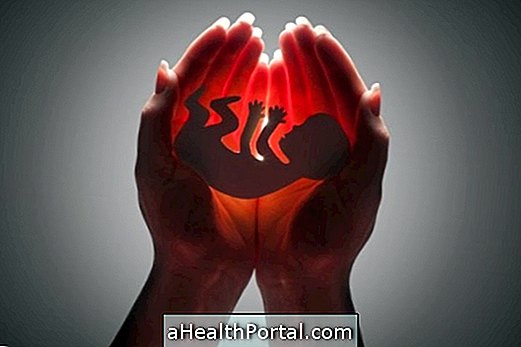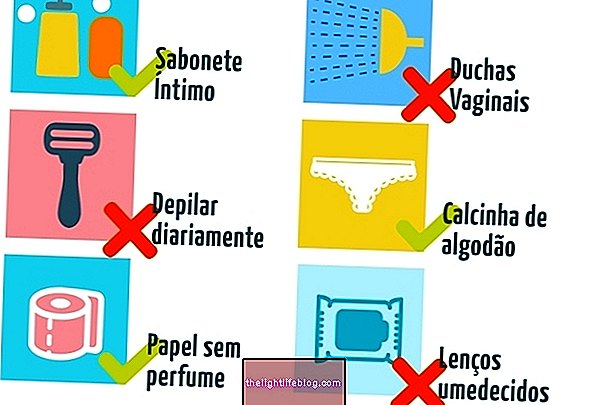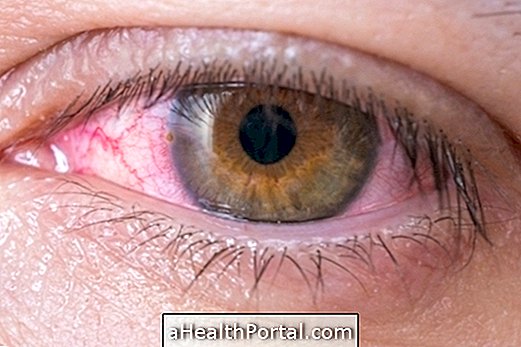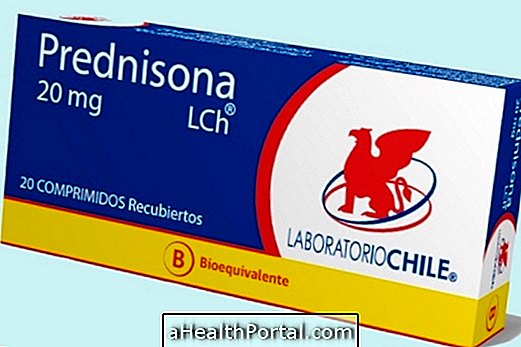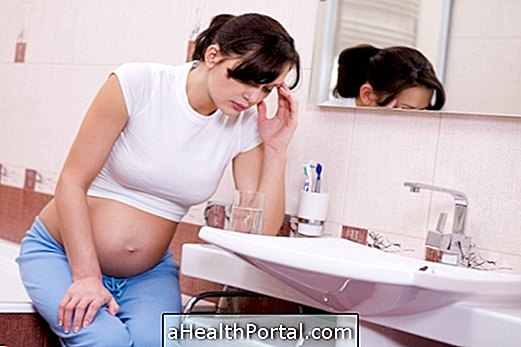Conjunctivitis is a normal problem during pregnancy, and is not dangerous for the baby or the woman, as long as the treatment is done properly.
Usually the treatment for bacterial and allergic conjunctivitis is done with the use of ointments or antibiotic or antiallergic drops, however a good part of the indicated medicines are not indicated for the pregnant women, unless it is recommended by the ophthalmologist.
Thus, treatment for conjunctivitis during pregnancy should be done with natural measures such as avoiding rubbing the eyes, keeping the hands clean and putting a cold compress on the eyes 2 to 3 times a day, for example.
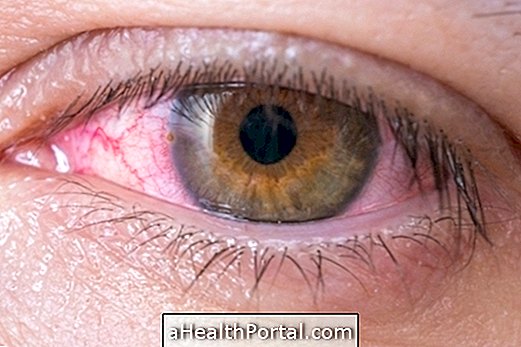
How To Treat Conjunctivitis During Pregnancy
Treatment for conjunctivitis during pregnancy should be done according to the ophthalmologist's advice, since most of the eye drops that are normally indicated for the treatment of conjunctivitis are not recommended for pregnant women. However, the consequences in pregnancy due to the use of eye drops are very low, but despite this, the use should only be done if the doctor indicates.
To relieve and combat the symptoms of conjunctivitis in pregnancy it is important to have some care, such as:
- Avoid rubbing the eyes, as it can delay the healing process, besides making the eyes more irritated;
- Put a cold compress on the eye 2 to 3 times a day for 15 minutes;
- Keep the eyes well clean by removing the secretions released with water or with a clean, soft cloth;
- Wash your hands regularly, especially before and after moving your eyes;
- Do not wear contact lenses, as they can worsen irritation and aggravate pain.
In addition, a cold compress of chamomile tea can be made, which can be done on the affected eye 2 to 3 times a day with the aim of relieving irritation and symptoms such as itching and burning, as it has calming properties. In some cases, the ophthalmologist may recommend the use of some eye drops, such as Moura Brazil, Optrex or Lacrima, but should only be used under medical advice.
Risks for Pregnancy
Conjunctivitis during pregnancy does not pose any risk to the mother or the baby, especially when it is a viral or allergic conjunctivitis. However, when it comes to bacterial conjunctivitis, it is important that the treatment is done as directed by the ophthalmologist, otherwise there may be problems with vision or blindness, for example, but this is rarely the case.




